#liu piao princess of guantao
Explore tagged Tumblr posts
Text
[Hanfu · 漢服]Chinese Western Han (202 BC–9 AD) Traditional Clothing Hanfu Photoshoot
She is the emperor's sister, She is also the emperor's aunt.




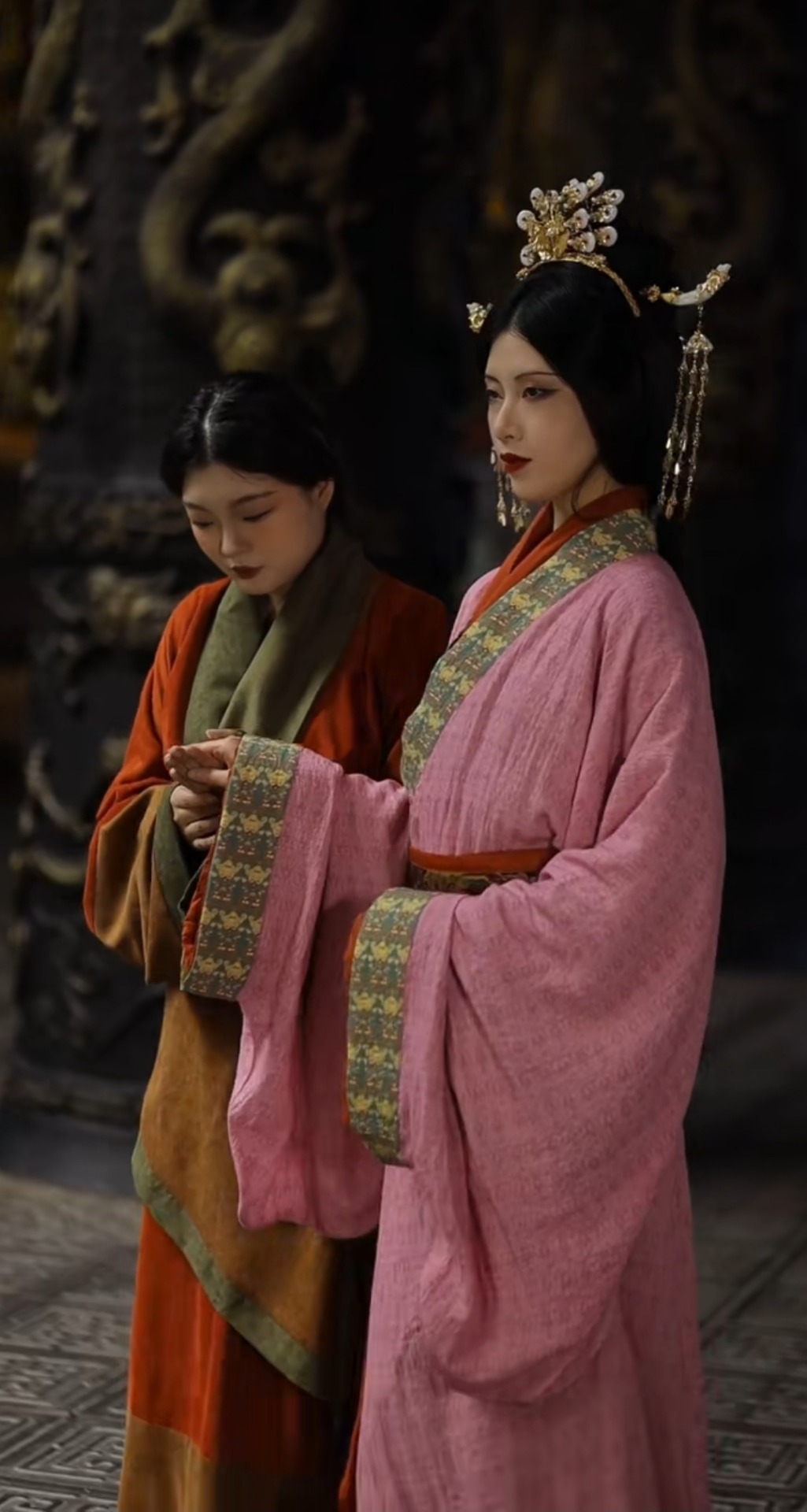
【About Princess Guantao Liu Piao/馆陶公主刘嫖】 Princess Guantao, Liu Piao (born before 188 BCE—died before 116 BCE), was the daughter of Emperor Wen of Han and Empress Dou, and the sister of Emperor Jing of Han. She was granted the title of Princess Guantao, but after marrying Chen Mu of Tangyi(堂邑)Marquis, she was also known as Princess Tangyi. As the aunt of Emperor Wu of Han, she was honored with the title of Dowager Dou(窦太主). Her daughter, Chen, became the first empress of Emperor Wu of Han.
Liu Piao's birth year is unknown, but her younger brother, Emperor Jing of Han (Liu Qi/刘启), was born in 188 BCE. At that time, their father, Emperor Wen of Han (Liu Heng/刘恒), was only fifteen years old and still a vassal king of han dynasty, so Liu Piao's birth year is unlikely to be later than 188 BCE. In September 180 BCE, Liu Heng was ushered to Chang'an and ascended the throne as Emperor Wen. A few months later, Liu Qi was made Crown Prince, Empress Dou was made appointed, and Liu Piao was given the title of Princess Guantao. During this period, Liu Piao married Chen Mu, Marquis of Tangyi, and they had at least two sons and one daughter. Chen Mu became the third-generation Marquis of Tangyi in the third year of Emperor Wen’s reign (177 BCE), but the exact date of Liu Piao's marriage to him is no longer verifiable.
During the Reign of Emperor Jing of Han(Princess's brother) Peirod
In 157 BCE, after Emperor Jing of Han ascended the throne, Princess Guantao Liu Piao continued to frequently visit the palace. With the favor of Dowager Dou and the indulgence of Emperor Jing, she became a significant figure in the Han court. During this time, her son Chen Jiao was granted the title of Marquis of Longlü because of his mother's status.
Liu Piao was adept at political maneuvering and used her daughter, Chen Shi(陈氏), as a political pawn. Initially, she intended to marry Chen Shi to Crown Prince Liu Rong(刘荣), the son of Lady Li(Concubine). However, due to her frequent introduce of beautiful women to Emperor Jing, which caused deep conflict with Lady Li, this proposal was firmly rejected by her. Enraged, Liu Piao later sought a marriage alliance with Consort Wang, who agreed to the match. Through the combined efforts of Liu Piao and Consort Wang, Crown Prince Liu Rong was deposed and made the King of Linjiang in the seventh year of the Yuan era (150 BCE), and two years later, he was forced to death, with Lady Li also dying from grief.
Soon after, Consort Wang was made Empress, and her son, Liu Che(刘彻), was established as Crown Prince and married Chen Shi(陈氏).
During the Reign of Emperor Wu of Han(汉武帝)
In 141 BCE, after Emperor Wu of Han (Liu Che/刘彻) ascended the throne, Chen Shi was made Empress(陈氏). As the granddaughter of Dowager Dou and the daughter of Princess Guantao Liu Piao, who had contributed to the appointment of Liu Che as Crown Prince, Chen Shi enjoyed significant favor. At this time, Princess Guantao Liu Piao had been elevated by the emperor and was honored with the title Dowager Dou(窦太主).
Later, Emperor Wu favored Wei Zifu(卫子夫), a singer from the residence of his sister, Princess Pingyang(平阳公主). This situation made Empress Chen extremely jealous, especially since she was childless and unable to conceive despite seeking medical help. Meanwhile, Wei Zifu(卫子夫) became pregnant. As a result, Empress Chen resorted to witchcraft, but Emperor Wu discovered her actions, leading to her deposition in the fifth year of the Yuan Guang era (130 BCE).
By 129 BCE, after the death of Dowager Dou Liu Piao's husband, Chen Mu, she was a woman in her sixty year old, living as a widow. At this time, she became infatuated with a handsome young man named Dong Yan(董偃). Dong Yan(董偃)'s mother had been a pearl seller, and from the age of thirteen, he had frequently visited the home of Dowager Dou Liu Piao. Known for his good looks, Dong Yan was summoned by Dowager Dou Liu Piao, who took him into her household, where he was educated and trained in various skills. At eighteen, Dong Yan served as Dowager Dou's attendant and also acted as her inner chamber servant. His gentle and kind nature, combined with their illicit relationship, led many to address him as “Lord Dong/董君.”
Later, Anling Yuan Shu(安陵爰叔) advised Dong Yan to suggest to Dowager Dou that she offer the Changmen Garden as a separate palace to Emperor Wu. Emperor Wu was pleased with this gesture and renamed the garden “Changmen Palace.” Dowager Dou, delighted with this outcome, rewarded Yuan Shu generously.
Subsequently, Anling Yuan Shu suggested that Dong Yan propose to Dowager Dou that she be ill and unable to see Emperor Wu. When Emperor Wu visited to inquire about her health, Dowager Dou expressed a desire to host him. After Dowager Dou recovered, Emperor Wu was invited to a banquet. During the event, Dowager Dou removed her jewelry, knelt to apologize to Emperor Wu, and then had Dong Yan do the same. Throughout the banquet, Dowager Dou and Dong Yan showed great respect and hospitality to Emperor Wu, who was very pleased. As a result, Dong Yan became highly favored and frequently participated in palace activities.
Han dynasty scholar-official DongFang Shuo(東方朔) was quite critical of Dong Yan, disapproving of his affair with the princess, which he felt undermined moral standards and distracted the ruler from his duties. Emperor Wu gradually distanced himself from Dong Yan, who fell out of favor and died in his thirties. After losing Dong Yan, Princess Guantao Liu Piao lived for several more years before her death. Her final wish was not to be buried with her husband, Chen Mu, but rather to be interred with her lover, Dong Yan, in Balin. This request is considered the beginning of more extravagant practices among princesses and noblewomen.
In the first year of the Yuanding era (116 BCE), her two sons, Chen Xu, Marquis of Tangyi, and Chen Jiao, Marquis of Longlü, committed suicide during their mother's mourning period due to their involvement in illicit affairs(with woman)and disputes over inheritance. The title of Marquis of Tangyi was abolished. A few years later, her daughter, the deposed Empress Chen Shi, also passed away.
In Chinese history, princesses were often unfortunate victims of political marriages and diplomatic alliances. However, there are also many fortunate examples, such as Princess Guantao. Unlike many others confined by the conservative constraints of a feudal empire, she lived a life of personal freedom and pursued her desires, breaking free from traditional limitations.
________________
📸Photo & Model :@金角大魔王i
🔗Weibo:https://weibo.com/1763668330/O3vkEFAC9
________________
#chinese hanfu#hanfu#Western Han (202 BC–9 AD)#hanfu accessories#hanfu_challenge#chinese traditional clothing#china#chinese#chinese history#china history#woman in history#Princess Guantao#漢服#汉服#中���風
133 notes
·
View notes
Photo
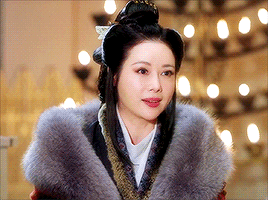
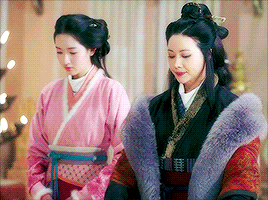
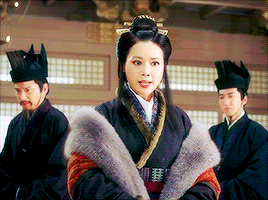
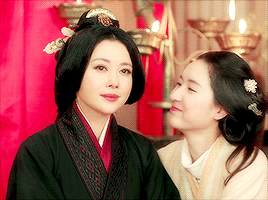
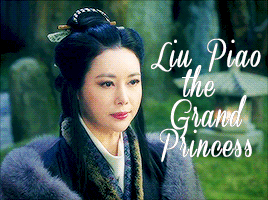
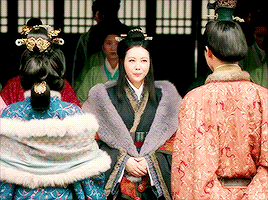
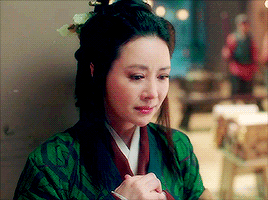
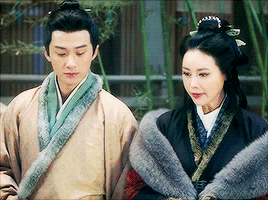
HISTORY MEME (1/5): HAN | TANG | SONG | MING | QING | Liu Piao, Princess of Guantao, also known as Grand Princess Dou
Liu Piao, the Grand Princess (Zhang Gongzhu Piao), c. 190–? 130/ 120 B.C.E., was born in what is now Yanmen Pass in Shanxi Province. She was the eldest daughter of Liu Heng and his concubine Lady Dou (later to become Empress Dou). She was also the older sister of Liu Qi (Emperor Jing, 188– 141 B.C.E.; r. 156– 141 B.C.E.). She was granted the title Princess of Guantao when her father became emperor, and after marrying Chen Wu, a grandson of Chen Ying, Marquis of Tangyi, she gave birth to a daughter whom they named Chen Jiao.
During the reign of her brother, Liu Piao was free to come and go in the court. Her beloved daughter Chen Jiao (whose nickname was Ajiao) therefore grew up in the rear palaces with her maternal cousin Liu Che (Emperor Wu, 156– 87 B.C.E.; r. 140– 87 B.C.E.). Liu Piao paid a great deal of attention to Liu Che, who was granted the title Prince of Jiaodong when he was four years old. One day in his residence she sat him on her lap and, pointing to his maids, asked him if he wanted a beautiful wife. None of the maids pleased the boy, but when Liu Piao pointed to Chen Jiao and asked the same question he replied with delight: “If I could have Ajiao as my wife I would build a house of gold for her!” However, Liu Piao was ambitious and when another of the emperor’s sons, Liu Rong, was appointed heir apparent she approached his mother, Concubine Li (Xiao Jing Li Ji), proposing a marriage between their children. To Liu Piao’s great surprise, Concubine Li rejected her proposal, leading her to put the marriage proposal to Consort Wang, the mother of Liu Che, who accepted immediately on her son’s behalf.
Liu Che ascended the throne when he was sixteen years old and appointed Chen Jiao his empress. After ten years of marriage, however, she had not borne him any children; she was also overbearing and jealous, while her mother, Liu Piao, had become exceedingly greedy. The emperor grew disgusted with both of them and transferred his affections to Wei Zifu, who had been brought into the palace on the recommendation of his eldest sister, the Princess of Pingyang. Empress Chen attempted suicide to regain the emperor’s favor and resorted to sorcery and incantations, performed by a witch named Chu Fu. When these activities were brought to light Chu Fu and some 300 others were put to death, while Empress Chen was deposed and sent to live in Changmen Palace. Undaunted, Liu Piao complained to the Princess of Pingyang about the emperor’s ungratefulness in abandoning his empress, claiming that he would not have become emperor without Liu Piao’s help. While the princess explained that Empress Chen had been deposed simply because she had not produced any children, the emperor argued that he had been unable to do otherwise, since “the empress engaged in unlawful activities.” Though Empress Chen had been deposed, he told Liu Piao, she was living in great comfort in Changmen Palace. This effectively silenced Liu Piao, who could do no more for her daughter.
Source: Lee, Lily Xiao Hong; Stefanowska, A.D.; Wiles, Sue. Biographical Dictionary of Chinese Women: Antiquity Through Sui, 1600 B.C.E. - 618 C.E (University of Hong Kong Libraries Publications)
#historyedit#women in history#perioddramaedit#asiandramanet#cdramaedit#cdramanet#cdramagifs#chineseartistsinc#liu piao princess of guantao#grand princess dou#刘嫖#han dynasty#western han dynasty#ancient history#*mine#*historymeme#she's so interesting imho#she was the first grand princess of the han dynasty#it's incredible that even after chen jiao was deposed she had so much influence#like the emperor organized banquets for her and visited her at her residence#I am hoping to update this every one or two weeks but we shall see#next up is tang#I wanted to include yuan dynasty in this meme but I don't know a lot about it
125 notes
·
View notes